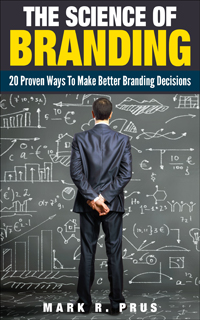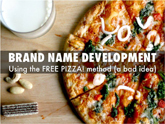Five Steps To Develop Your Personal Brand
Personal Branding Is Not Just For Influencers — You Need It Too!

Photo by Christina @ wocintechchat.com
I know, not another article on personal branding!
Here is a different way to think about it. “Personal Branding” is just a shortcut description of the process of figuring out who you are, what you stand for, how you interact with others, and where you are going in the future. I think everyone would agree that those are critically important things to understand and communicate. And that is what personal branding can do for you!
Personal branding is essential for leaders who want to be successful in their business efforts. Establishing a clear, concise, and compelling personal brand can enhance your trust and credibility, which can help in raising money or attracting public interest in your business. A strong personal brand can enable you to stand out from the crowd and establish yourself as an expert in your community. Finally, having a strong personal brand can lead to superior networking possibilities.
Building a personal brand may seem challenging, but it is actually a very simple process. This process mirrors the one I would use to develop a brand strategy when I was working at a top consumer products company. Here is the 5-step process for developing a personal brand:
- Identify your most important target audience.
- Define your role in your area of expertise.
- Communicate your meaningful point of difference.
- Provide the most important reason why one should believe this point of difference.
- Express your brand personality.
Let’s cover each step of the process in detail. Then I’ll show you how to put it together in a Personal Brand Positioning Statement that can be a touchstone for how to present yourself to the world.
TARGET AUDIENCE
While it is true that your personal brand will be exposed to everyone, you should not consider “everyone” to be your Target Audience. An effective leader will tailor his/her brand to the Target Audience that is most relevant.
Seth Godin is a marketing genius, and his book This Is Marketing contains an entire chapter dedicated to finding “The Smallest Viable Market” for your business, product, or service. Seth advocates starting small. Here are some relevant quotes from Chapter 4 of his book:
· “The relentless pursuit of mass will make you boring, because mass means average, it means the center of the curve, it requires you to offend no-one and satisfy everyone.”
· “Instead of trying to reach everyone,” he says, “we should seek to reach the smallest viable audience and delight them so thoughtfully and fully that they tell others.”
· “‘It’s not for you’ shows the ability to respect someone enough that you’re not going to waste their time, pander to them, or insist that they change their beliefs. It shows respect for those you seek to serve, to say to them, ‘I made this for you. Not for the other folks, but for you.’”
Consider the most relevant niche market for your personal brand and don’t be afraid to start small!
Here is an example. A few years ago, I hired a handyman to install a new garage door opener. He did a fantastic job. I was so impressed by his dedication to the quality of his work that I tried to get him to help me with some other projects. And even though these projects were well within his skillset he told me no, that he only did garage door openers. He said that focusing on garage door openers was enough to keep him busy, and because that was all he did he could delve into the intricacies of different manufacturers and models, to enable him to install all types of openers with ease. He truly was an expert in this niche, and I have recommended him to others who need to have a garage door opener installed. But don’t ask him to do anything else!
ROLE & AREA OF EXPERTISE
What do you call yourself? Are you a consultant? Are you a Fractional Chief Marketing Officer? Are you an expert in a specific field? Answer the question: What do you do?
Where do you operate? Consider geography if geography is important (e.g., a local plumber). Consider the scope of your operations (e.g., if you own a limousine are you in the transportation business or are you in the wedding party business or the bachelor party or prom business?).
The goal is to be able to communicate what you do in your area of expertise with just a few words. It could be as simple as “I’m a CPA who specializes in small business taxes.”
MEANINGFUL POINT OF DIFFERENCE
What is your unique “special sauce” that you, and only you, provide. Your Point of Difference should be the most compelling and motivating benefit that you can own in the hearts and minds of your Target Audience.
The word own is bolded and italicized because that is critically important. To establish a strong positioning in the marketplace, you must have a compelling and motivating benefit that you can own.
Here is a 3-step process to identify your Point of Difference:
Identify aspects of your product or service that your competitors cannot imitate. Put a star beside anything that cannot be easily duplicated, reproduced, or copied.
Decide what emotional need is being specifically met by your product or service. Think about this from the perspective of your Target Audience and add it to your list.
Answer the question your customers are asking: “What’s in it for me?” Make it to the point and state it as a benefit to the customer. Such as:
- Target: “Expect more. Pay less.”
- U.S. Peace Corp: “The toughest job you’ll ever love.”
- M&M’s: “Melts in your mouth, not in your hand.”
- FedEx: “When your package absolutely, positively has to get there overnight.”
Your Point of Difference should be so clear that it stands out in a field of competing voices. For example, if my water heater dies, I’m calling “Mr. Water Heater” who offers “same day service.”
REASON WHY
Tell me why I should believe the meaningful Point of Difference. Provide evidence to support your claim. You could offer proof (over 1000 satisfied clients) or endorsement (recommended by Good Housekeeping or Angi) or expertise (only Bill Smith has served in both the House of Representatives and the Senate) or explanation (I’ve worked with disadvantaged youth since 1995 and have personally ensured that more than 100 have graduated from college) or even reviews (cite comments from people who have worked with you in the past).
BRAND PERSONALITY
Personality is all about how you will interact with your Target Audience. Personality humanizes your brand in the eyes of your Target Audience.
The traditional way to develop your Brand Personality is to describe your brand as a person. In other words, if you walked into the room, how would someone describe you? Is this the way you wish to be perceived? If not, consider how you might change your personality.
For example, in the comparison between Apple and Microsoft, Apple would be a young, hip, creative type and Microsoft would be an older, mature professional type. In fact, this difference was visualized in the famous “Mac versus PC” ads (https://www.youtube.com/watch?v=0eEG5LVXdKo).
PUTTING IT ALL TOGETHER
Once you have done the work on each component, you should put them together in a Personal Brand Positioning Statement. Here is how I would do it:
To (TARGET AUDIENCE), I am a (ROLE & AREA OF EXPERTISE) that (MEANINGFUL POINT OF DIFFERENCE) because (REASON WHY). My brand personality is (BRAND PERSONALITY).
As an example, here is a Brand Positioning Statement for a small business CPA:
To owners of small businesses (under $1 million in sales), I am a CPA/tax preparer who is uniquely qualified to assist small businesses in tax preparation because I have 25+ years of experience in small business tax preparation and have a long list of satisfied clients. My brand personality is competence as evidenced by being intelligent and highly skilled, reliable in delivering results on time and within budget, and hard working (I work until the client is happy).
FINAL THOUGHTS
Personal Branding is an essential tool for business professionals to use to communicate who you are, what you stand for, how you interact with others, and where you are going in the future. A clear, concise, and compelling personal brand can supercharge your career, lead to immense personal growth, and maximize the impact you have in your areas of influence.



